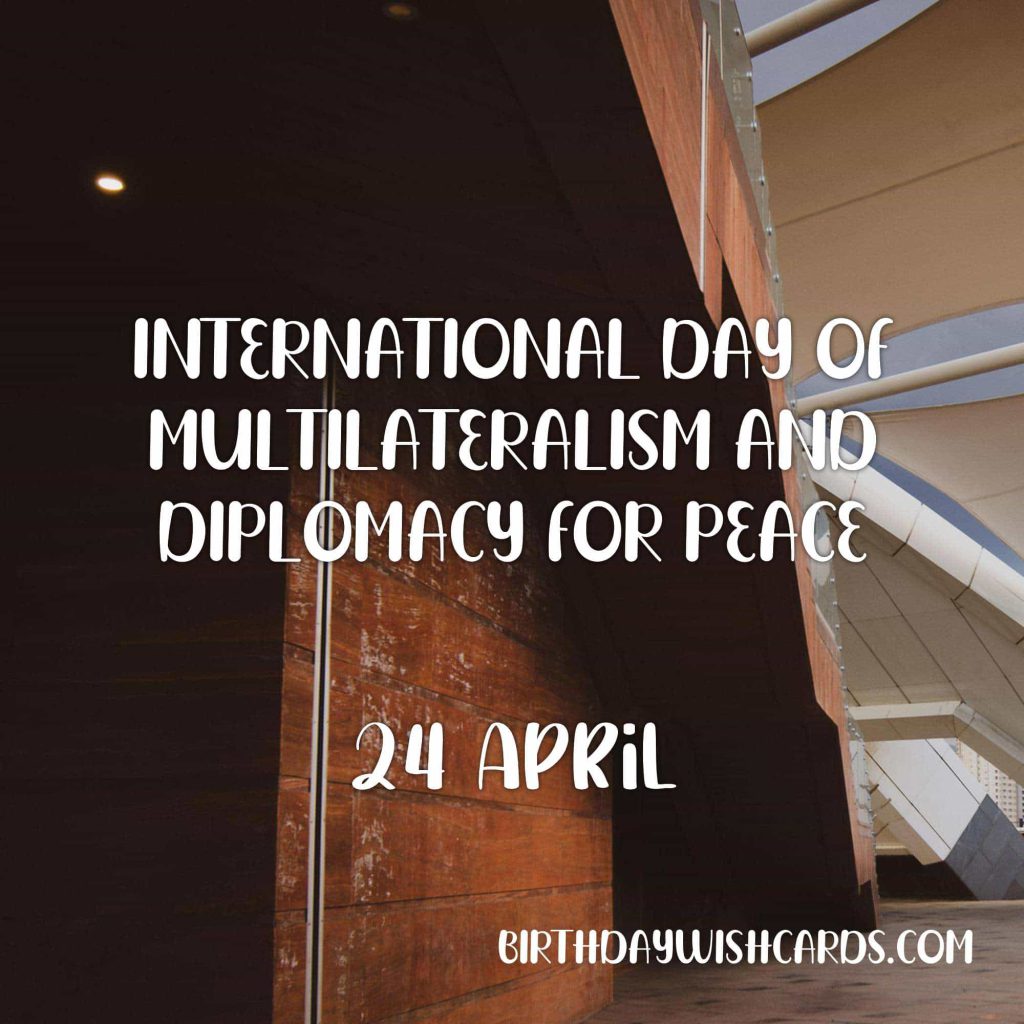
24 April: International Day of Multilateralism and Diplomacy for Peace
The International Day of Multilateralism and Diplomacy for Peace was established on 12 December 2018 by United Nations resolution A/RES/73/127 and first observed on 24 April 2019. This day underscores the importance of multilateral diplomacy as a cornerstone for maintaining international peace and security.
Background
The United Nations (UN) was founded in 1945 in the aftermath of the Second World War, with the primary goal of promoting global peace and security. The UN Charter commits member states to resolve disputes by peaceful means, aiming to shield future generations from the devastation of war.
Peacekeeping and conflict prevention are central to the UN’s mission. While peacekeeping operations often draw public attention, conflict prevention—through diplomacy—is an equally vital, though sometimes overlooked, aspect of the UN’s work. Effective diplomacy helps defuse tensions before they escalate into violence. When disputes arise, swift and strategic diplomatic engagement is essential to contain conflicts and address their underlying causes.
Preventive diplomacy is a key tool in the UN’s efforts to resolve conflicts peacefully and maintain international stability. It encompasses early warning systems, mediation, negotiation, and confidence-building measures designed to avert disputes from turning into open conflict.
The Importance of Multilateralism
Multilateralism involves multiple countries working together in a coordinated manner to address shared challenges. It forms the foundation of the international system established by the United Nations and other global institutions. Through multilateral diplomacy, states collaborate on complex issues such as climate change, pandemics, disarmament, and human rights protection.
By fostering dialogue among nations, multilateralism ensures that solutions are inclusive, sustainable, and equitable. It builds trust and cooperation, reduces the risk of conflict, and upholds a rules-based international order.
Celebrating Diplomacy and Peace
The International Day of Multilateralism and Diplomacy for Peace serves as an annual reminder of the power of diplomacy to resolve disputes peacefully. It encourages governments, civil society, and individuals worldwide to renew their commitment to multilateral cooperation.
Typical observances include conferences, educational programs, and public discussions focused on strengthening diplomatic efforts and enhancing the capacity of international organizations to mediate conflicts effectively.
Key Objectives
- Promote the principles of multilateralism and peaceful diplomacy in resolving international conflicts.
- Encourage dialogue and negotiation over violence or unilateral action.
- Highlight the vital role of the United Nations and other multilateral institutions in maintaining global peace and security.
- Raise awareness about the importance of preventive diplomacy in conflict resolution.
- Inspire greater collaboration among nations to address global challenges collectively.
How to Participate
Individuals and organizations can mark the International Day of Multilateralism and Diplomacy for Peace in several ways:
- Organize or attend seminars and workshops focused on diplomacy and peacebuilding.
- Engage with educational materials and campaigns that promote the values of multilateralism.
- Support or volunteer with organizations dedicated to conflict resolution and peace advocacy.
- Use social media to raise awareness about the importance of diplomacy and international cooperation.
Visual Representations of Diplomacy and Peace
The following images capture the spirit of diplomacy and international cooperation celebrated on this day:

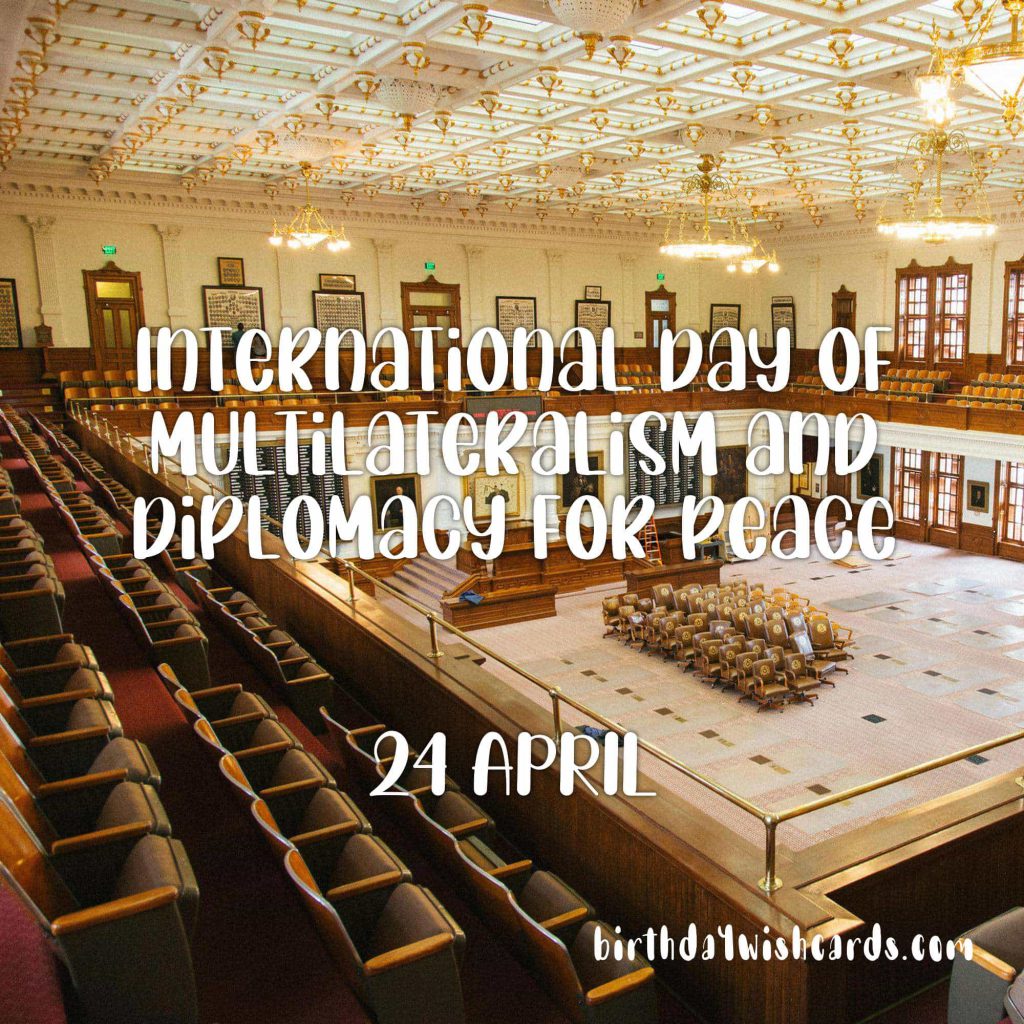
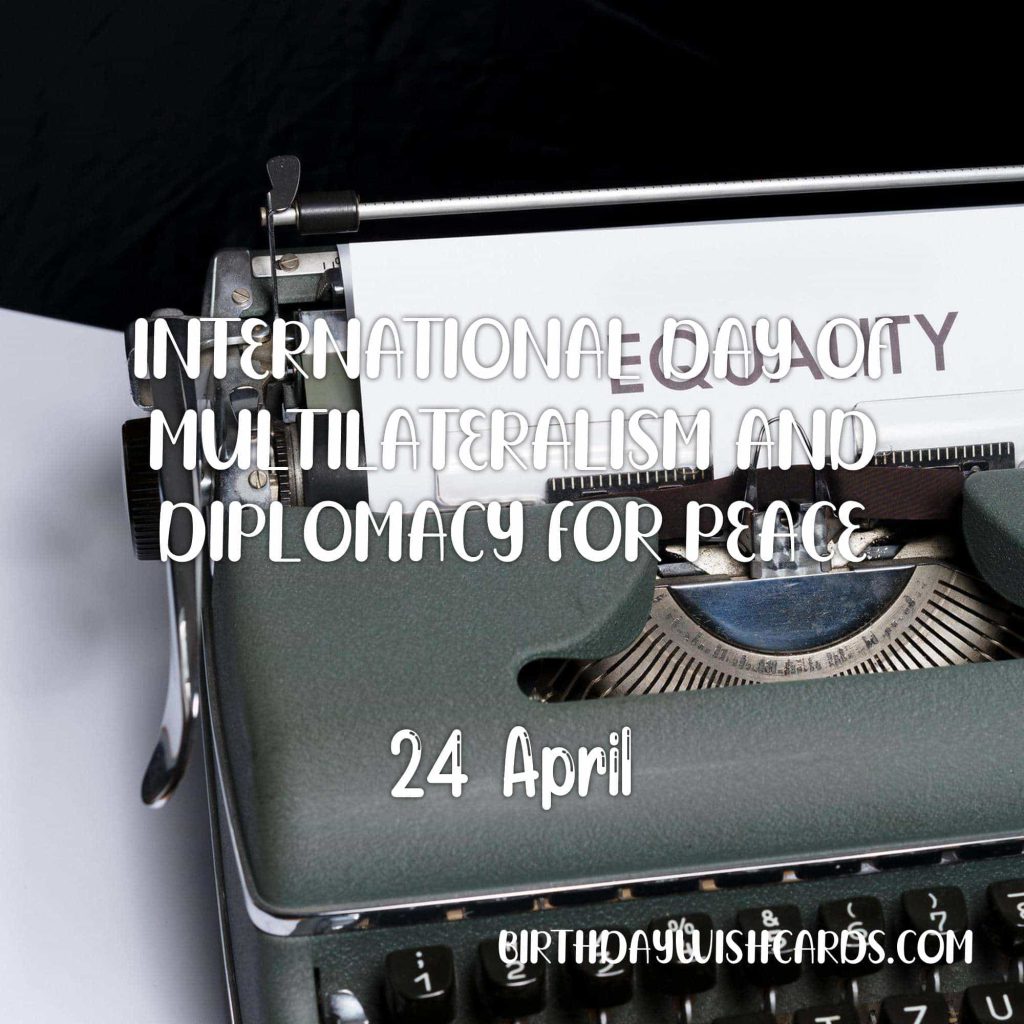
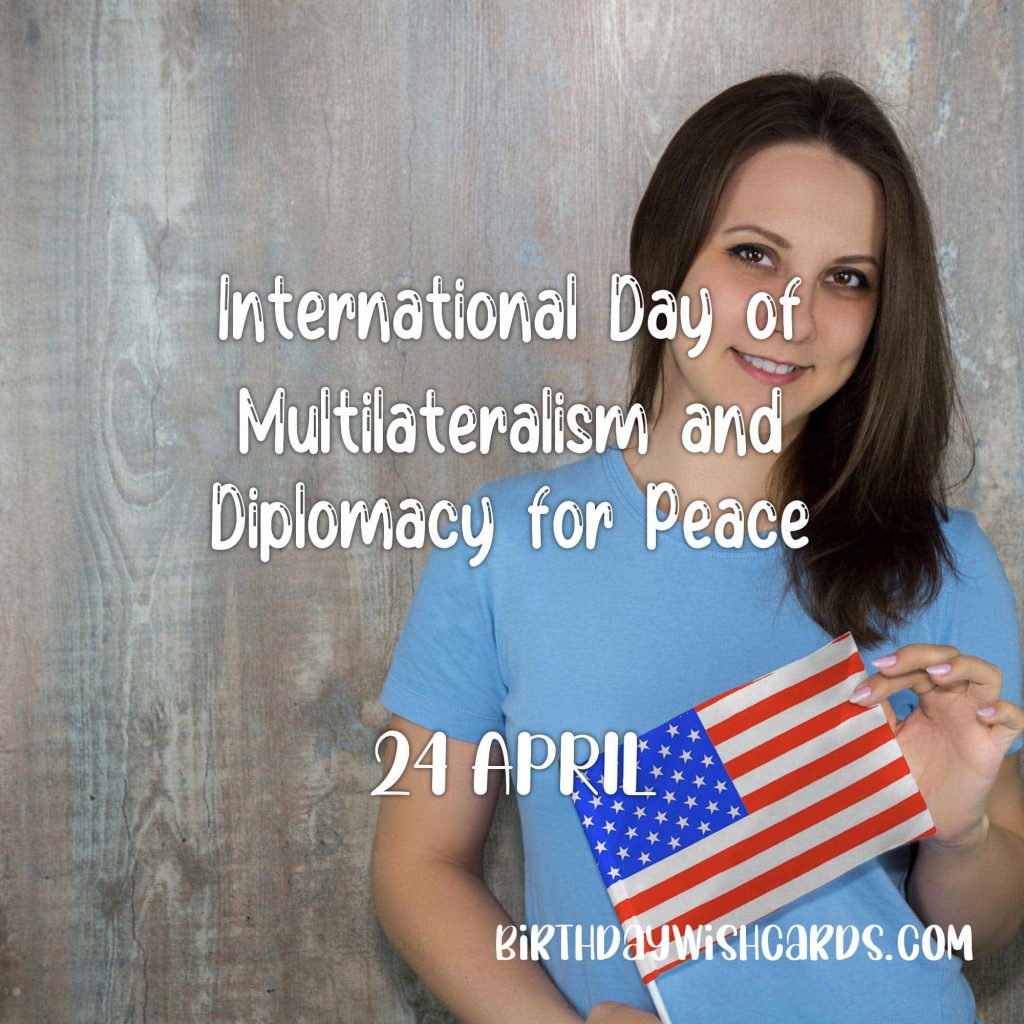
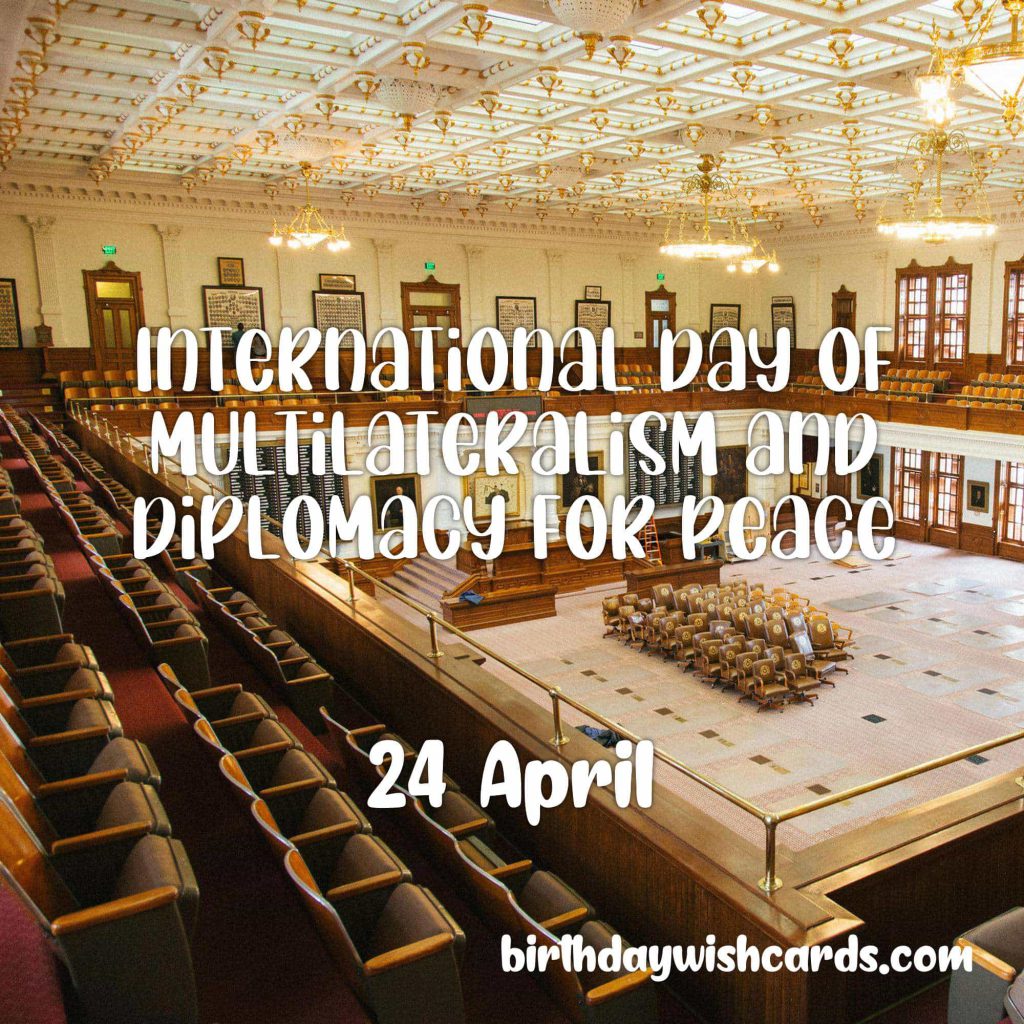
Conclusion
The International Day of Multilateralism and Diplomacy for Peace reaffirms the vital role of diplomacy and multilateral cooperation in building a world free from conflict and violence. As global challenges become increasingly interconnected and complex, the need for effective multilateral dialogue and peaceful negotiation has never been greater.
By embracing the principles celebrated on this day, nations and individuals alike can help create a more peaceful, just, and secure world for current and future generations.
To learn more about the role of diplomacy and the United Nations in maintaining peace, visit the United Nations Peace and Security page or explore resources from the Council on Foreign Relations.




